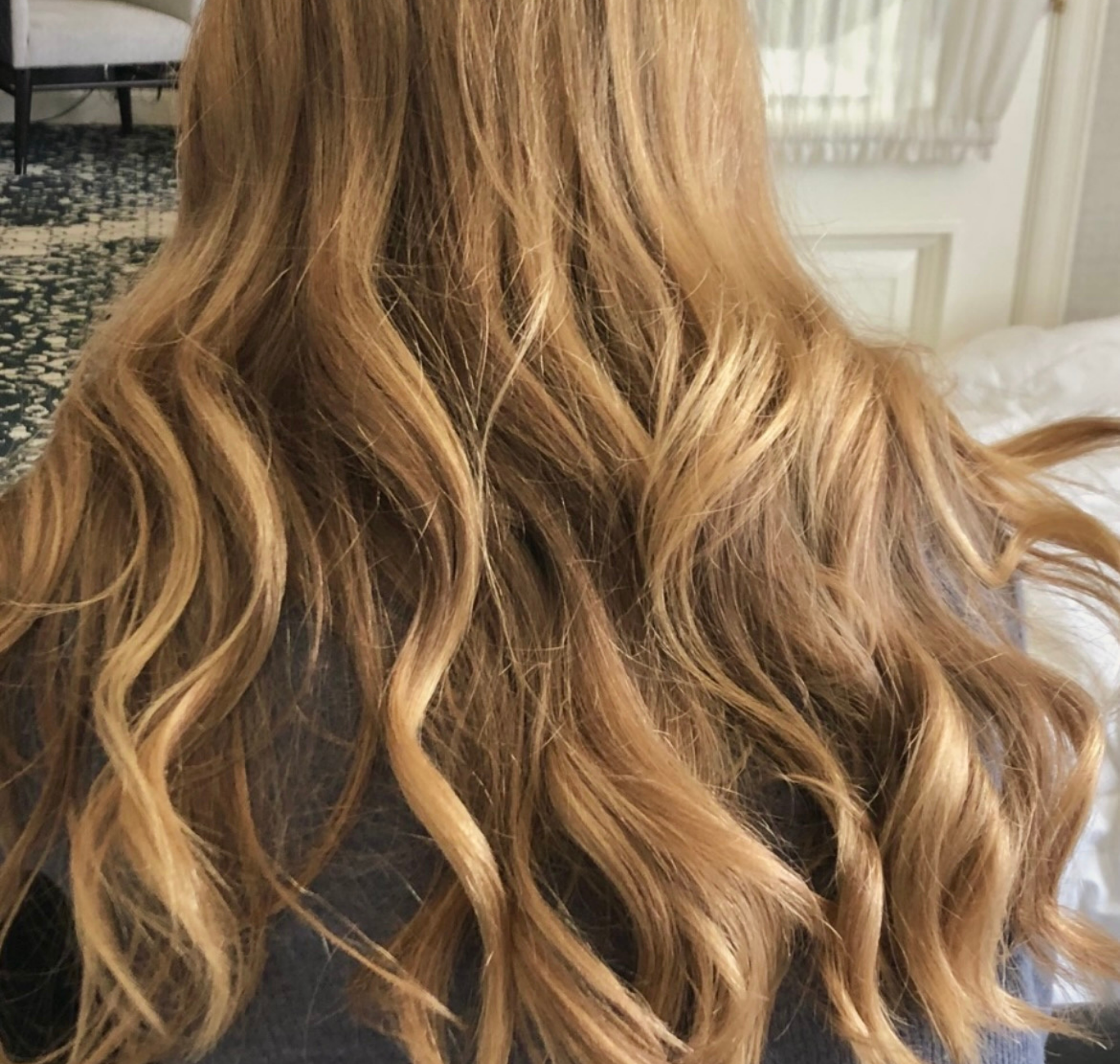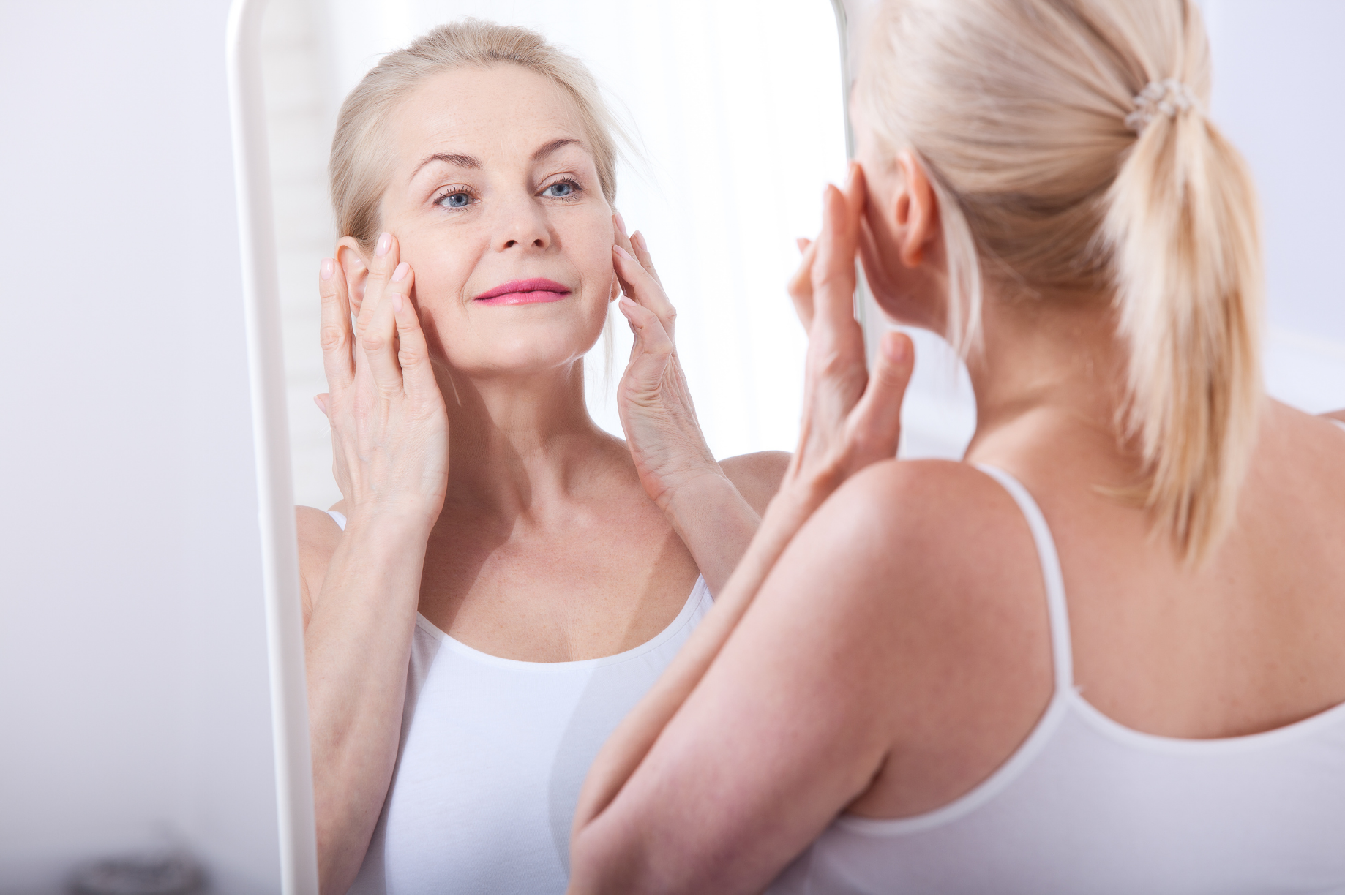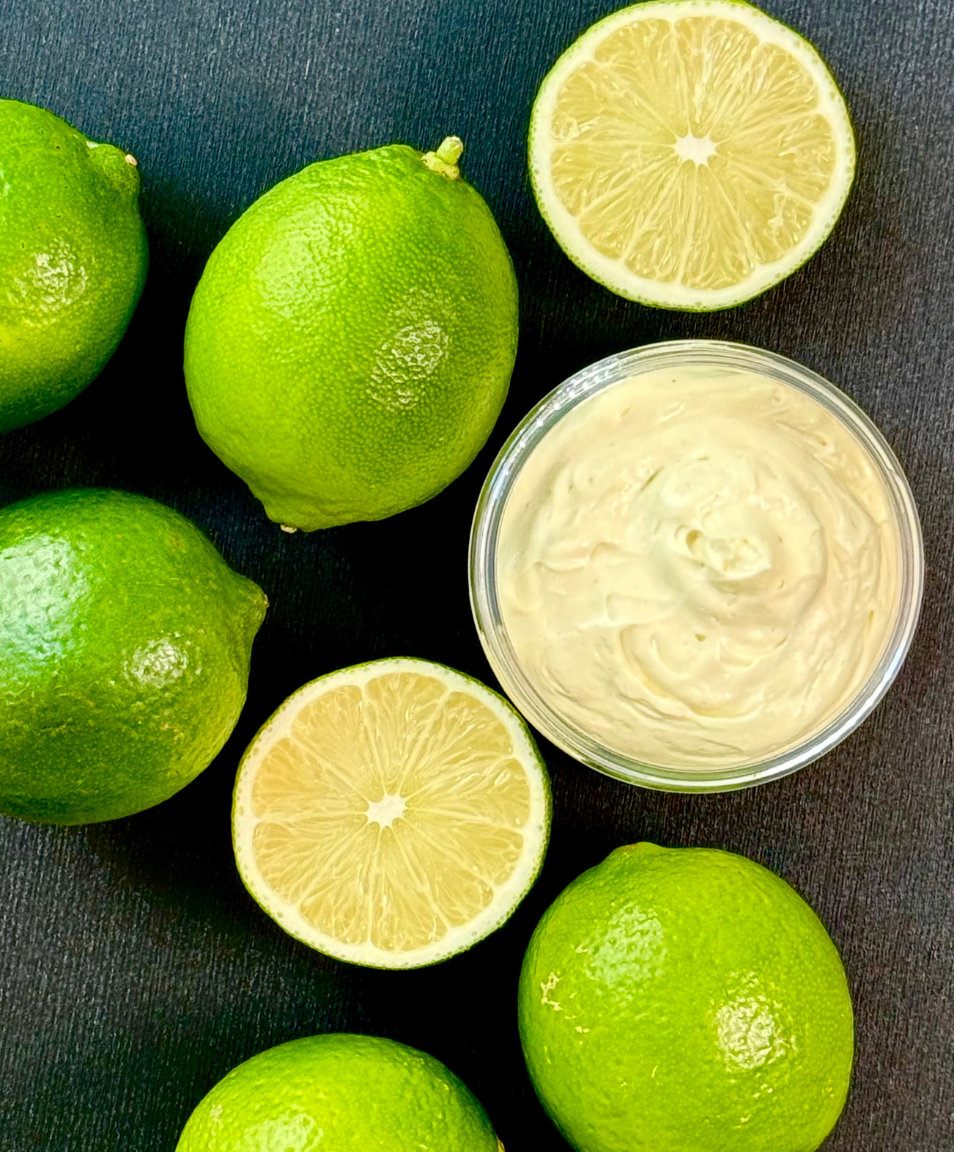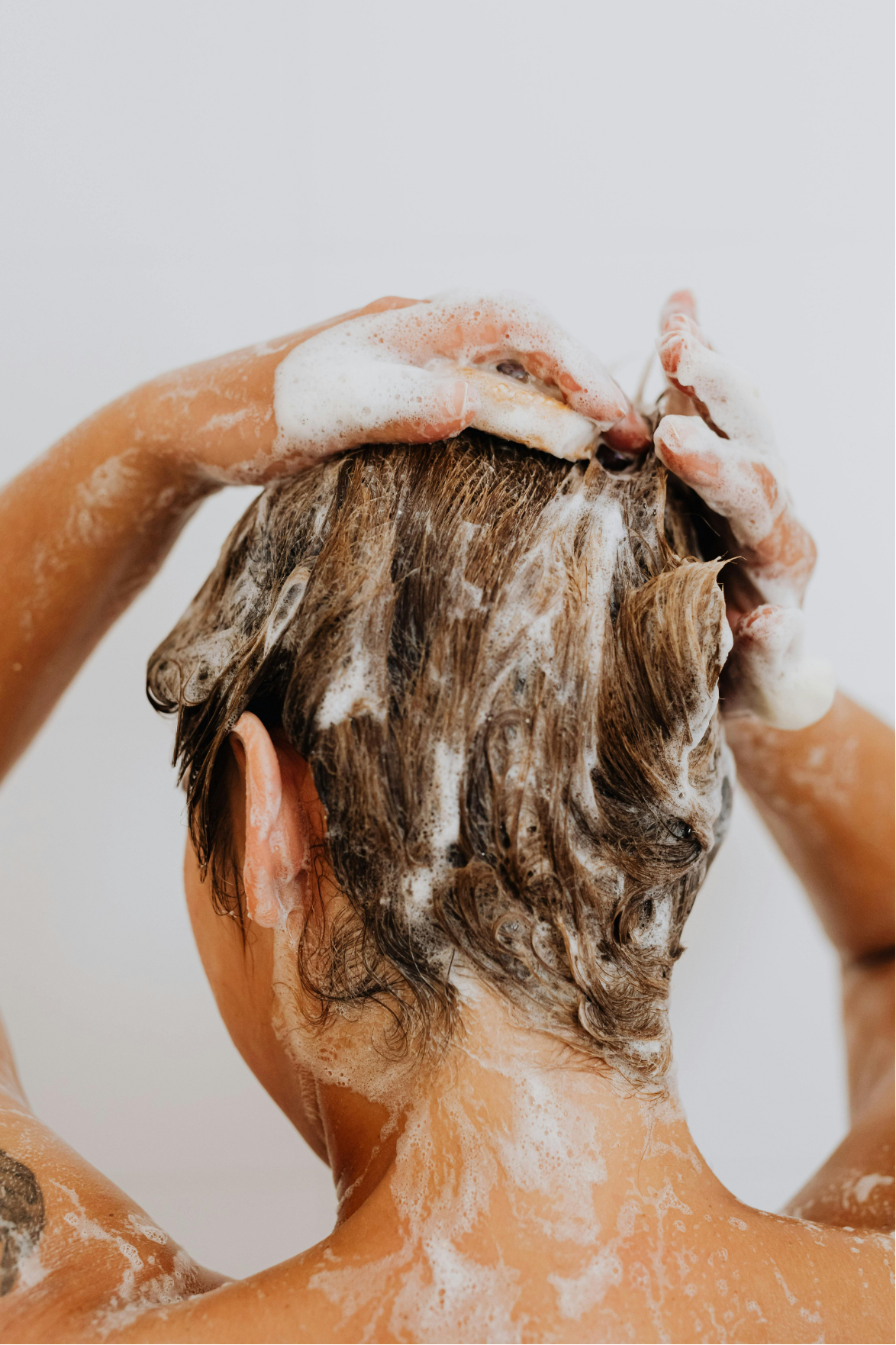Last Updated March 14th, 2025
There’s something so indulgent about a great hair mask. You slather it on, maybe sink into the tub or relax with a book, and let all those ingredients work their magic. But what’s really in that mask, and is it actually benefiting your strands and scalp? Chemical-based hair masks can be positively loaded with ingredients that do more harm than good, from surfactants and preservatives to silicones and artificial fragrance. You’re far better off with a hair mask that uses naturally derived ingredients—but that doesn’t mean you’re stuck with DIY options (mashed bananas, anyone?). Here’s why the best hair masks are all natural, but not homemade.
Good Hair Starts With A Healthy Scalp
While it’s easy to fixate on our strands themselves, there’s a simple truth you should learn and embrace. Good hair days always, always begin with a happy, balanced scalp. The very same products you use to style your hair, maybe to coax those dreamy ringlets or fight frizz or add body, can coat your scalp, leading to buildup that causes all kinds of problems. Beyond flat, greasy, weighed-down strands, scalp buildup can ultimately lead to irritation, flakes, inflammation and even infection.
So, what’s behind that buildup? Very often, you can blame specific ingredients in your shampoo, conditioner and styling products. Many of them are intentionally designed to coat the hair shaft, and that’s exactly what they do—all the way up to the scalp.
-
Sulfates. These guys are behind that satisfying lather we all know and love, but they tend to be really hard on the scalp because they strip away natural oils. That leads to dryness and irritation and very often jump-starts excess oil production as your scalp works to remedy the imbalance.
-
Petroleum and mineral oil. You’ll find these in styling products like gels and pomades. They aren’t water soluble, and they leave a thick, waxy buildup that’s really hard to remove.
-
Silicones. Used for added shine and softness, silicones coat the hair shaft and scalp. They often work wonders in the short term, but alas, they keep moisture out and ultimately lead to dry, parched, dull, limp locks.
-
Preservatives. Ingredients like parabens and formaldehyde releasers help extend shelf life. It’s a bonus for manufacturers looking for product longevity, but these things are associated with worrisome health concerns, and they’re often irritating to the skin.
Other baddies include environmental pollutants, specifically volatile organic compounds (VOCs) and particulate matter, that build up on the scalp, along with minerals from hard water. Overactive oil production, often the result of improper cleansing, creates a mess of oil, sweat and dead skin cells that clog hair follicles and lead to irritation.
Signs of a Scalp Imbalance
It’s not always easy to identify scalp buildup as the issue behind bad hair days, but there are signs.
-
Greasy locks that you can’t seem to get clean
-
Itchiness and irritation
-
Dry flakes
-
Brittle, limp locks prone to breakage
If scalp buildup is the culprit behind bad hair days, doubling down with a mask that contains the very same ingredients causing the buildup isn’t going to accomplish much. So what’s the solution?
Why Your Hair And Scalp Love Natural Ingredients
First, check the label on that hair mask. If you’re stumbling over a bunch of endless, impossible-to-pronounce words, it’s time to consider something better. Natural ingredients, like aloe vera, shea butter, and coconut and jojoba oils, work wonders on thirsty, processed strands without bumming out your scalp. In fact, it’s quite the opposite—many natural ingredients support a healthy scalp microbiome with beneficial nutrients. And that means better hair days ahead!
We tend to forget that the skin on our scalp needs the same level of care and attention as it does everywhere else to keep it healthy and functional. Too often, we focus entirely on our hair itself and look for products to make it look great. But it’s really important to tread carefully and ensure that you aren’t inadvertently compromising scalp health in the process. Unfortunately, that means you can’t assume that the latest TikTok miracle hair product is going to support a healthy scalp. It takes a little skepticism and a bit of homework to learn exactly what’s in all the products you routinely rake through your hair or apply directly to your head.
That’s not to say that every natural ingredient is great for hair. Don’t go rubbing poison ivy all over your head and expect anything good. Luckily, there are brands that understand exactly which natural ingredients support your skin, scalp and hair—and if you’re reading this, you’ve found one.
The Best All-Natural Hair Masks For Softer Strands
If you’re new to Shimmer Chef, a brief intro is in order. Our founder combined her esthetician background with years of chef training, leaned into her family’s Mexican folk medicine heritage, and whipped up raw, living plasters and balms powered by organic superfoods and the magic of fermentation. The finished products are a true labor of love, rich in vitamins, minerals and antioxidants that flood the skin barrier and support a balanced microbiome. Our proprietary Vitamin C Fermentation Technique creates a “Mother Sauce” that’s teeming with probiotics and prebiotics. We combine it with healthy oils, plant butters, seeds and herbs to create fresh, living formulations with nary a preservative or synthetic ingredient to be seen. That means no sulfates, no dyes, no fake fragrance, no alcohol—nothing to irritate or inflame your skin, whether it’s on your body, your face or your scalp. Oh, and did we mention our Made Safe certification from the Environmental Working Group? It adds another reassuring layer of safety and sustainability to our all-natural approach.
We offer two hair and scalp plasters, and guys, these things are as good as it gets. First is our Citrus Cider Whip Hair & Scalp Plaster. It’s deeply reparative, thanks to fruit butters, coconut oil, argan oil and citrus-derived serums that gently clear scalp impurities and flood locks with moisture. Try it on all hair types for silky, shiny, super-soft locks, and enjoy the self-care that’s built into this indulgent mask. It’s applied directly to dry strands to saturate the hair and scalp. Leave it on for an hour or get crazy and keep it on overnight. To remove, apply shampoo directly onto plastered hair from scalp to ends, adding a few palmfuls of water to work up a gentle lather. Rinse thoroughly, and repeat with another round of shampoo if necessary.
Then we have the Hibiscus Rosemary Compote Hair & Scalp Fortifier, which offers dual benefits. It treats and calms inflamed, itchy scalps, while hibiscus and rosemary offer strengthening and fortifying benefits to the hair itself. This is the one we recommend you’re plagued with skin conditions like eczema, a flaky scalp, or dry, brittle strands. Use it like you would a deep conditioning mask. Apply to dry scalp and hair, leave on for 10 minutes or so, then shampoo and condition as usual.
Like A Homemade Mask, But So Much Better
There’s a lot to love about a great hair mask. But when the goal is softer, shinier hair, you need to double check those ingredients before you saturate your strands. Remember, good hair starts at the scalp, which means using ingredients that support this often-overlooked part of the body’s biggest and most exposed organ. Luckily, Shimmer Chef’s raw plasters are heaven on earth for your scalp and your hair.
Chef Jennifer Sanford, the visionary behind Shimmer Chef, fuses her talents as a Health Supportive Culinary Arts Chef and licensed esthetician to develop formulas that radically transform your skin, scalp and hair. Jennifer brings a holistic approach to beauty and wellness, drawing on the wisdom of Mexican Folk Medicine passed down through her family, as well as studies of the ancient art of Ayurveda through her yoga and meditation certifications.








